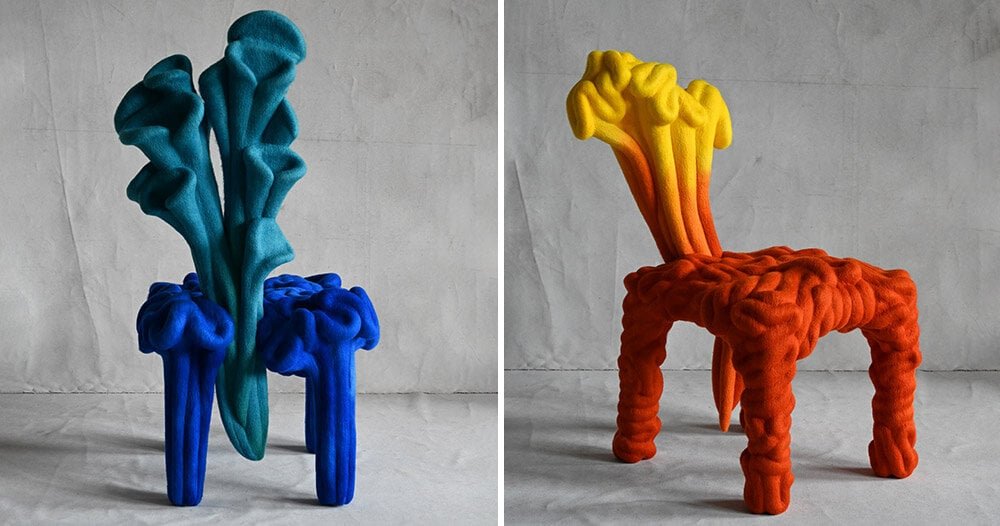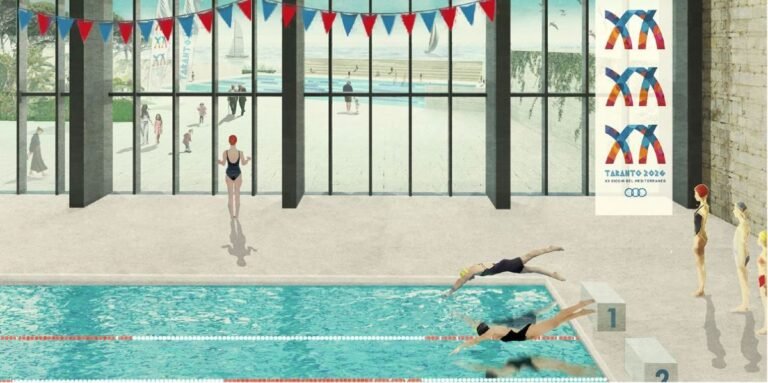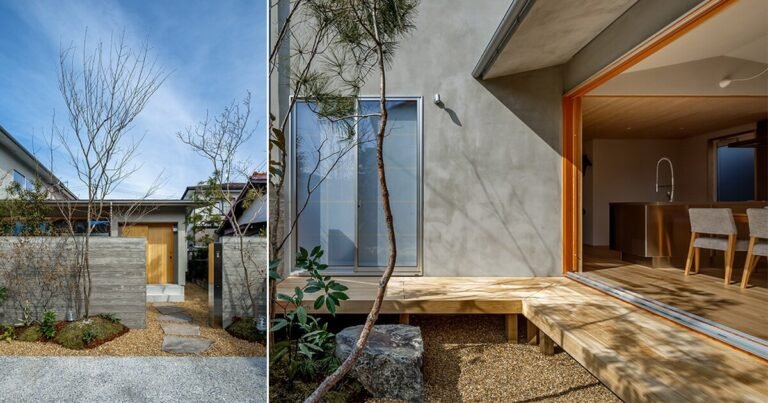liam lee mimics organic growth with handcrafted merino wool chairs
catch and release: liam lee exhibition opens in new york
In a newly opened exhibition titled Catch and Release, Patrick Parrish Gallery showcases the undulating felt chairs of designer Liam Lee. The artist recently showed his work as part of last month’s LOEWE Foundation Craft Prize 2023 at the Noguchi Museum, and was shortlisted for his vibrant chair meticulously handcrafted from merino wool. With a profound fascination for the ephemeral nature of creation and the enigmatic poetry hidden beneath the ocean’s surface, Lee now presents his debut solo exhibition at the New York gallery.
‘In my work, I try to create work that feels — upon first encounter — as if it sprung up from the ground overnight or has grown into its current state without human intervention,’ says Lee.
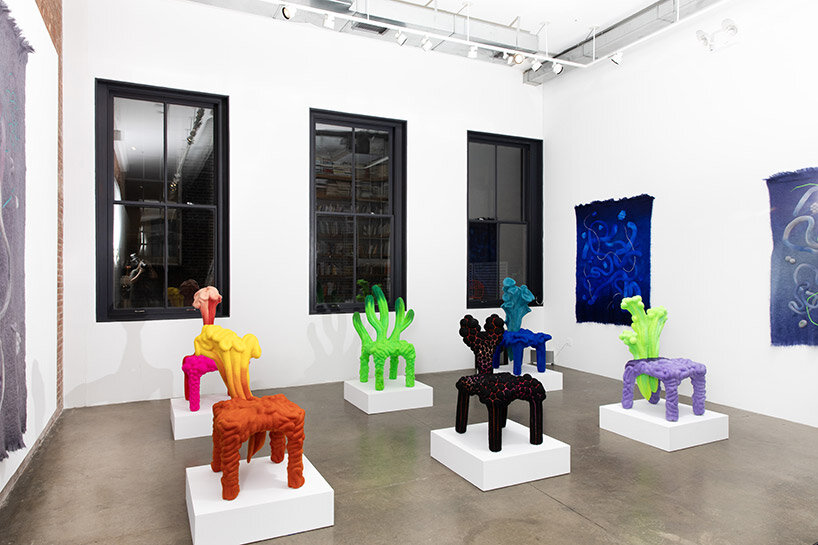 exhibition view | images © Clemens Kois
exhibition view | images © Clemens Kois
the everyday chair transformed with biophilic form
Upon the opening of Catch and Release, Patrick Parrish Gallery described Liam Lee’s work as ‘phantasmagorical,’ with its undulating chairs sculpted by hand from felted merino wool. The 29 year-old artist and designer shapes his visions through creative instinct, technical improvisation, and a deep appreciation for the evocative power of ‘sense-memory.’
As a self-taught creative, Lee pushes the boundaries of his craft with labor-intensive techniques employed in unexpected ways. This way, the material and its formal conventions are challenged and upended. Speaking through his own visual language, Lee’s pieces present a vivid splash of color, texture, materiality, and scale, encouraging a reconsideration of our relationship with the everyday objects that occupy our homes.
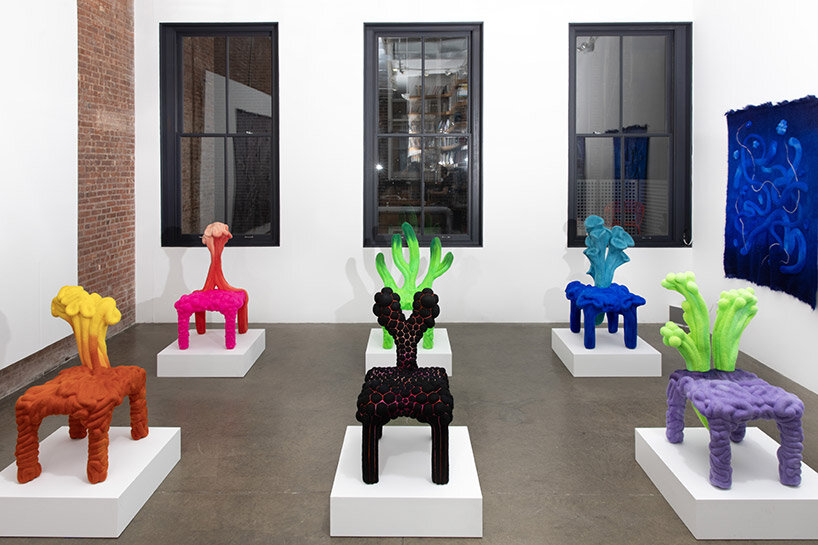
exhibition view | six merino wool chairs are showcased as the centerpiece of the exhibition
ceramic, paper, and wire works debuted
Alongside his felted chairs and tapestries, Liam Lee’s expanding repertoire is debuted with the Catch and Release exhibition. Visitors will be introduced to his collection of glazed ceramics, works on paper, and mesmerizing crocheted wire light sculptures. Lee’s intent is not to transport us to a specific location, but rather to evoke a profound sense of wonder, much like the awe he experienced as a child exploring tide pools, where each shell and rock carried its own mystical narrative.
‘Despite growing up as a city kid with an apparent lack of greenery around me, the natural world continues to occupy a sort of magical space through its physical separateness from what I generally experience on a daily basis,’ says the artist. ‘This notion of an untouched ‘natural’ world, or distinction between the natural and the man made is of course a human construct, and it’s exactly this romanticized or imaginary version of the natural that I’m drawn to.’
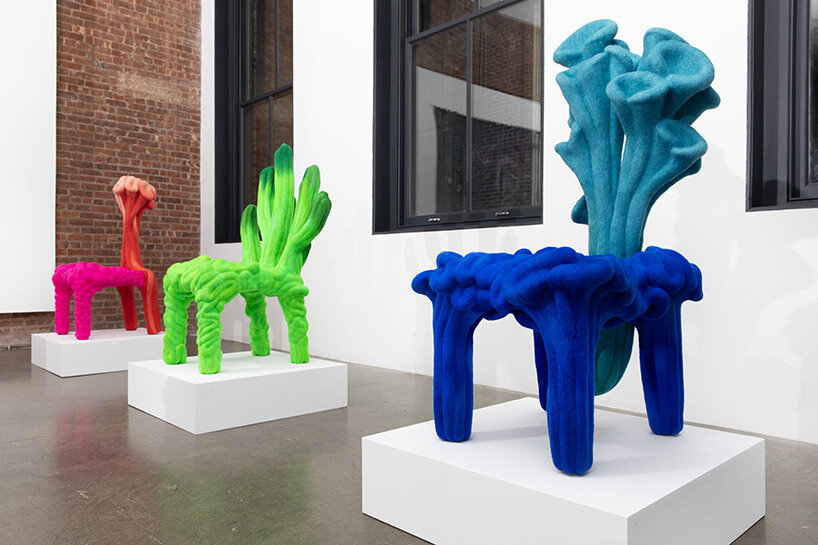 exhibition view | the artist replicates organic, growing forms
exhibition view | the artist replicates organic, growing forms
learning from the ocean realm
Tethered to the power and mystery of the ocean and its inhabitants, every piece in the collection is carefully designed and handcrafted by Liam Lee himself. Fluid forms gracefully navigate across mohair and merino wool surfaces, ceramic coral clings delicately to the edges of mirrors, and freshwater pearls adorn the copper wire ‘skin’ of sculptures that seemingly embody the essence of mystical lampreys. Each work serves as a testament to Lee’s profound connection with the depths of the ocean, inviting viewers to embark on their own imaginative journey through this captivating realm.
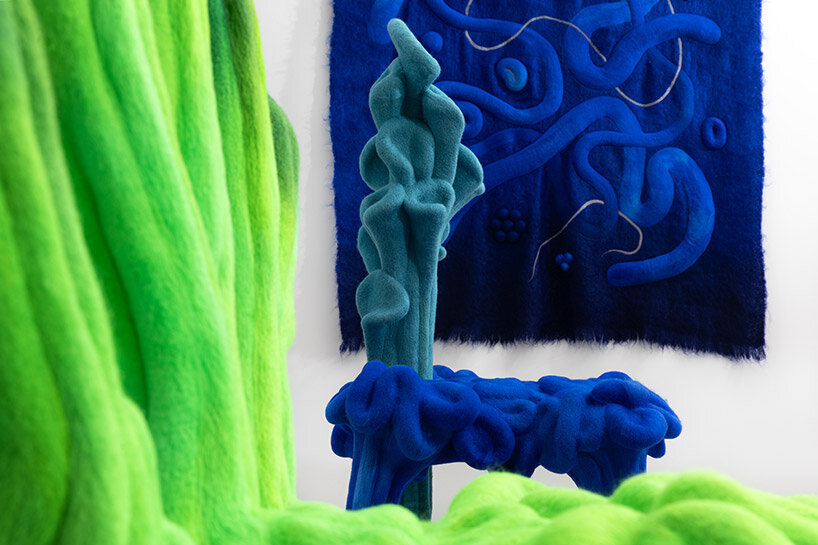 exhibition view | chairs are displayed alongside wool tapestries
exhibition view | chairs are displayed alongside wool tapestries
‘The title of the show speaks both to the aquatic source of inspiration for this body of work, as well as to the process of creating the work itself, which involves at times casting a net and pulling up a form or an idea and then releasing it back into the world,’ the artist continues.
‘It also nods to the figure of Proteus, who constantly changes shape, but when caught, holds his true form and provides the answer to his captor’s question. I suppose it’s also a way of not holding onto the things you create — a way of catching the thing in your hand for a brief time as it takes shape and then letting it go.’

